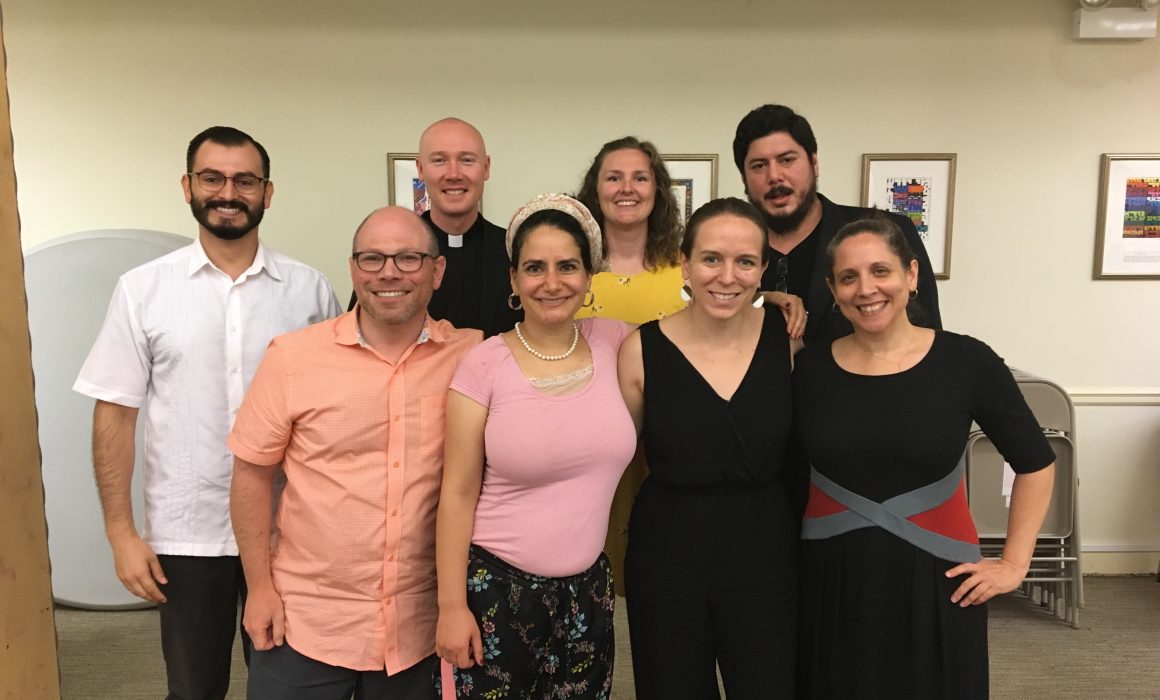Training Chaplains to “Be Present”
By Rabbi Jonathan Malamy, Director of Spiritual Care and Religious Life
“Are you ready to die?”
It was a simple but jarring question and one that the seminarian was really not prepared for. As he sat with a terminal patient near the koi pond on our Manhattan campus, he knew he needed to answer. But how? The student quickly replied that in his religious tradition, he was taught to live every day as if it were his last.
The patient, not satisfied, challenged him, “You’re not answering my question. I’m asking if you personally feel ready to die.”
The man of faith then realized he was not there to be a religious expert. What the dying man needed was a mirroring human experience. He needed to make a deep personal connection. He needed honesty. The seminarian gathered himself – and his courage – and admitted, “No, I am not ready.”
Gratified, the patient said, “Thank you! That’s how I feel, too.”
This poignant moment of self-realization and connection was but one of the defining moments for a group of chaplain interns I had the privilege to co-teach this summer as part of The New Jewish Home’s Clinical Pastoral Education Program (CPE). Run in conjunction with the Jewish Theological Seminary and under the supervision of a Certified Educator, the CPE program trains seminarians, clergy, and other professionals – both men and women – to provide spiritual care and compassionate support to our residents and patients who are often facing the end of life. The goal of the rigorous 400-hour program, now in its fourth year at The New Jewish Home, is for students to become skilled providers of spiritual care and progress toward eligibility for Board certification as chaplains.
Chaplaincy is often expected in hospitals. I am proud that The New Jewish Home has become one of few nursing homes in New York to offer training to chaplain interns and the only one accredited by the Association for Clinical Pastoral Education as a training site for this crucial work.
This summer, our six students, representing an eclectic mix of religious traditions (liberal Protestant, Orthodox Christian, Catholic, and Orthodox Jewish), each completed 300 hours of clinical practice at our Manhattan campus and elsewhere in the city, as well as 100 hours of education and supervision.
At an early point in my training, I expected I would learn answers for life’s big questions. But in my many years providing spiritual care, I’ve learned that nothing we can do will conquer death or vanquish people’s physical suffering. But what I try to do – and what we teach our students – is that as chaplains, we can create a space to witness and provide affirmation, where people can express fears and regrets, pain and hope. It’s a nonjudgmental place where imperfect people join together and journey side-by-side toward what may come. We don’t give answers, we don’t push any particular faith or belief. But we can be present for them and help lessen their isolation, hear their stories, and reach together for meaning.
Yes, this work is hard on the soul. But over the course of the summer, I watched these future chaplains and clergy develop important skills and a reflective awareness of themselves. Time and time again, each student practiced offering our patients a nonjudgmental and unhurried ear. They traveled with our patients in their places of suffering, affirming their holiness and enduring worth as human beings.
And the result? Both the students and our residents grew spiritually stronger and better prepared to face the future, whatever it held.
# # #
For more information or to support The New Jewish Home’s Clinical Pastoral Education Program, please contact Rabbi Malamy at CPE@jewishhome.org.
The New Jewish Home has a proud legacy of empowering older adults to live with purpose and enhanced well-being. We’ve been around since 1848 as one of the nation’s first nursing homes, and now serving older New Yorkers of all backgrounds through a portfolio of health care services, including post-acute care and rehabilitation, skilled nursing, adult day care, assisted living, and at-home care.
See how we continue to elevate health care for older adults through our Research Institute on Aging and our SkillSpring program (formerly known as Geriatrics Career Development program), which empower teens and young adults to begin careers in health care.

